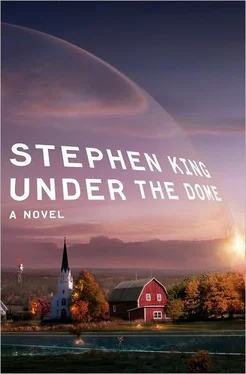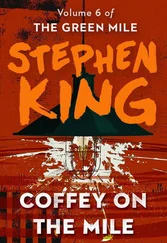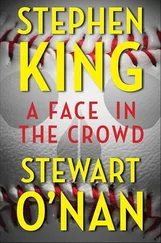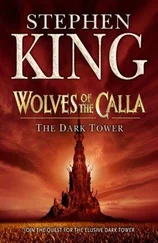“E-mail it to me.”
“I won’t. I think e-mail is antithetical to the newspaper business. I’m very old-fashioned that way.”
“You’re an irritating piece of work, dear lady.”
“I may be irritating, but I’m not your dear lady.”
“Tell me this: is it a frame job? Something to do with Sanders and Rennie?”
“Colonel, in your experience, does a bear defecate in the woods?” Silence. Then he said, “I’ll meet you in an hour.”
“I’ll be bringing company. Barbie’s employer. I think you’ll be interested in what she has to say.”
“Fine.”
Julia hung up the phone. “Want to take a little ride with me out to the Dome, Rose?”
“If it’ll help Barbie, sure.”
“We can hope, but I’m kind of thinking we’re on our own here.” Julia shifted her attention to Pete and Tony. “Will you two finish stapling those? Stack em by the door and lock up when you leave. Get a good night’s sleep, because tomorrow we all get to be news-boys. This paper’s getting the old-school treatment. Every house in town. The close-in farms. And Eastchester, of course. Lots of new people out there, theoretically less susceptible to the Big Jim mystique.”
Pete raised his eyebrows.
“Our Mr. Rennie’s the home team,” Julia said. “He’s going to climb onto the stump at the emergency town meeting Thursday night and try to wind this town up like a pocketwatch. The visitors get first ups, though.” She pointed at the newspapers. “Those are our first ups. If enough people read that, he’ll have some tough questions to answer before he gets to speechifying. Maybe we can disrupt his rhythm a little.”
“Maybe a lot, if we find out who did the rock-throwing at Food City,” Pete said. “And you know what? I think we will. I think this whole thing was put together on the fly. There’s got to be loose ends.”
“I just hope Barbie’s still alive when we start pulling them,” Julia said. She looked at her watch. “Come on, Rosie, let’s take a ride. You want to come, Horace?”
Horace did.
“You can let me off here, sir,” Sammy said. It was a pleasant ranch-style in Eastchester. Although the house was dark, the lawn was lit, because they were now close to the Dome, where bright lights had been set up at the Chester’s Mill–Harlow town line.
“Wa’m nuther beer for the road, Missy Lou?”
“No, sir, this is the end of the road for me.” Although it wasn’t. She still had to go back to town. In the yellow glow cast by the domelight, Alden Dinsmore looked eighty-five instead of forty-five. She had never seen such a sad face… except maybe for her own, in the mirror of her hospital room before she set out on this journey. She leaned over and kissed his cheek. The stubble there prickled her lips. He put his hand to the spot, and actually smiled a little.
“You ought to go home now, sir. You’ve got a wife to think about. And another boy to take care of.”
“I s’pose you’re right.”
“I am right.”
“You be okay?”
“Yes, sir.” She got out, then turned back to him. “Will you?”
“I’ll try,” he said.
Sammy slammed the door and stood at the end of the driveway, watching him turn around. He went into the ditch, but it was dry and he got out all right. He headed back toward 119, weaving at first. Then the taillights settled into a more or less straight line. He was in the middle of the road again—fucking the white line, Phil would have said—but she thought that would be okay. It was going on eight thirty now, full dark, and she didn’t think he’d meet anyone.
When his taillights winked out of sight, she walked up to the dark ranch house. It wasn’t much compared to some of the fine old homes on Town Common Hill, but nicer than anything she’d ever had. It was nice inside, too. She had been here once with Phil, back in the days when he did nothing but sell a little weed and cook a little glass out back of the trailer for his own use. Back before he started getting his strange ideas about Jesus and going to that crappy church, where they believed everybody was going to hell but them. Religion was where Phil’s trouble had started. It had led him to Cog-gins, and Coggins or someone else had turned him into The Chef.
The people who had lived here weren’t tweekers; tweekers wouldn’t be able to keep a house like this for long, they’d freebase the mortgage. But Jack and Myra Evans had enjoyed a little wacky tobacky from time to time, and Phil Bushey had been happy to supply it. They were nice people, and Phil had treated them nice. Back in those days he’d still been capable of treating people nice.
Myra gave them iced coffee. Sammy had been seven or so months gone with Little Walter then, showing plenty, and Myra had asked her if she wanted a boy or a girl. Not looking down her nose a bit. Jack had taken Phil into his little office-den to pay him, and Phil had called to her. “Hey, honey, you should get a load of this!”
It all seemed so long ago.
She tried the front door. It was locked. She picked up one of the decorative stones that bordered Myra’s flowerbed and stood in front of the picture window, hefting it in her hand. After some thought, she went around back instead of throwing it. Climbing through a window would be difficult in her current condition. And even if she was able (and careful), she might cut herself badly enough to interfere with the rest of her plans for the evening.
Also, it was a nice house. She didn’t want to vandalize it if she didn’t have to.
And she didn’t. Jack’s body had been taken away, the town was still functioning well enough for that, but no one had thought to lock the back door. Sammy walked right in. There was no generator and it was darker than a raccoon’s asshole, but there was a box of wooden matches on the kitchen stove, and the first one she lit showed her a flashlight on the kitchen table. It worked just fine. The beam illuminated what looked like a bloodstain on the floor. She switched it away from that in a hurry and started for Jack Evans’s office-den. It was right off the living room, a cubby so small that there was really room for no more than a desk and a glass-fronted cabinet.
She ran the beam of the flashlight across the desk, then raised it so that it reflected in the glassy eyes of Jack’s most treasured trophy: the head of a moose he’d shot up in TR-90 three years before. The moosehead was what Phil had called her in to see.
“I got the last ticket in the lottery that year,” Jack had told them. “And bagged him with that.” He pointed at the rifle in the cabinet. It was a fearsome-looking thing with a scope.
Myra had come into the doorway, the ice rattling in her own glass of iced coffee, looking cool and pretty and amused—the kind of woman, Sammy knew, she herself would never be. “It cost far too much, but I let him have it after he promised he’d take me to Bermuda for a week next December.”
“Bermuda,” Sammy said now, looking at the moosehead. “But she never got to go. That’s too sad.”
Phil, putting the envelope with the cash in it into his back pocket, had said: “Awesome rifle, but not exactly the thing for home protection.”
“I’ve got that covered, too,” Jack had replied, and although he hadn’t shown Phil just how he had it covered, he’d patted the top of his desk meaningfully. “Got a couple of damn good handguns.”
Phil had nodded back, just as meaningfully. Sammy and Myra had exchanged a boys will be boys look of perfect harmony. She still remembered how good that look had made her feel, how included, and she supposed that was part of the reason she had come here instead of trying someplace else, someplace closer to town.
Читать дальше











